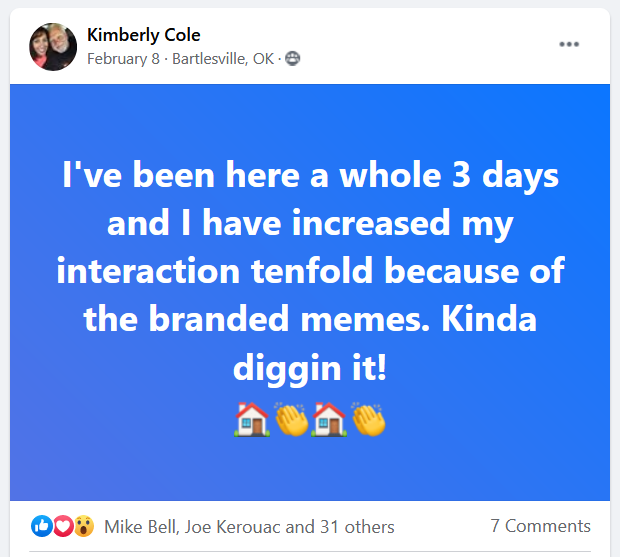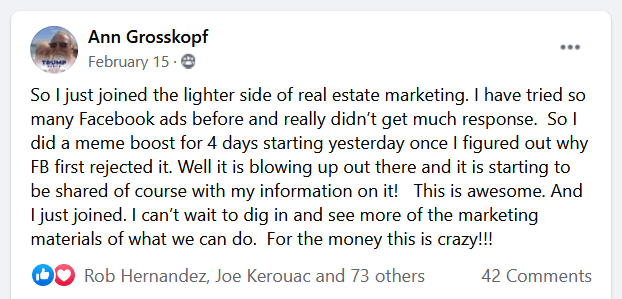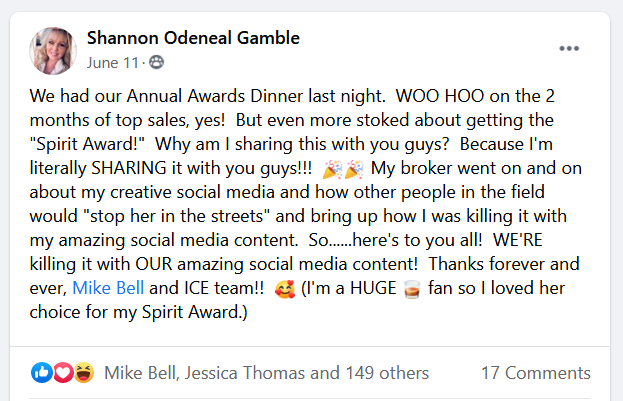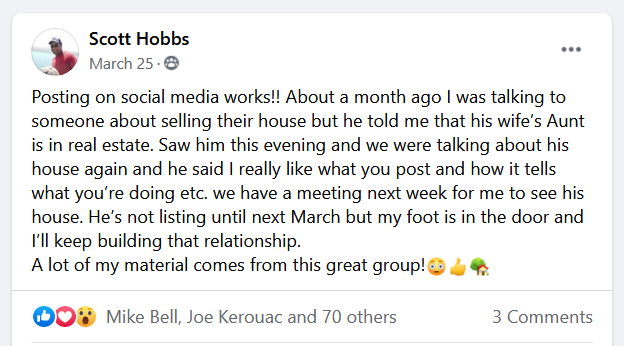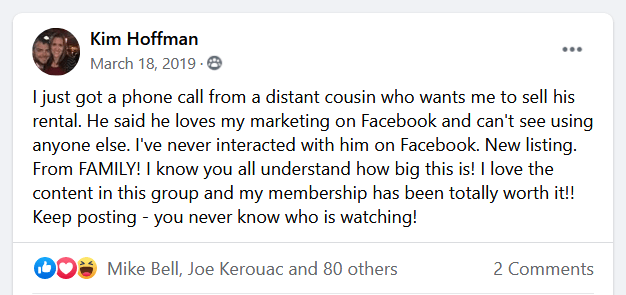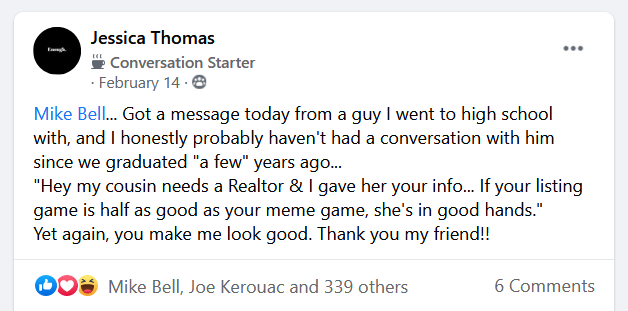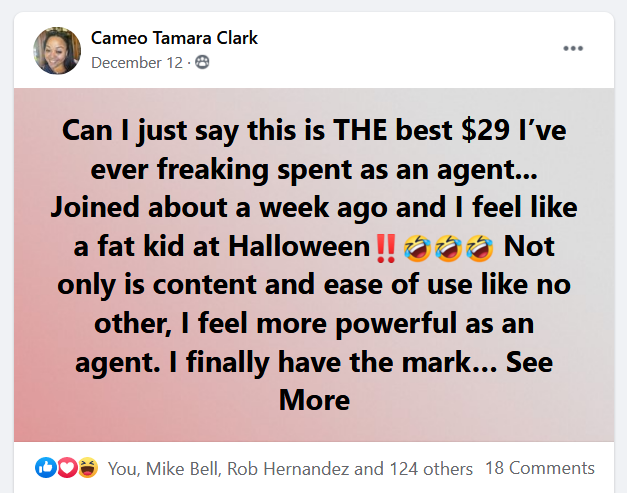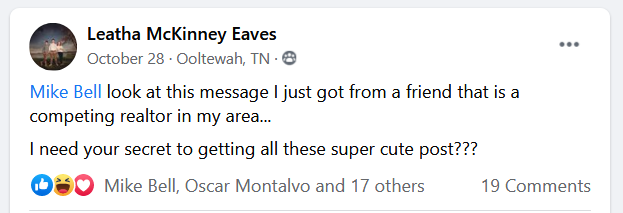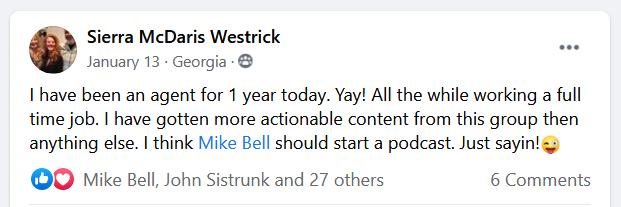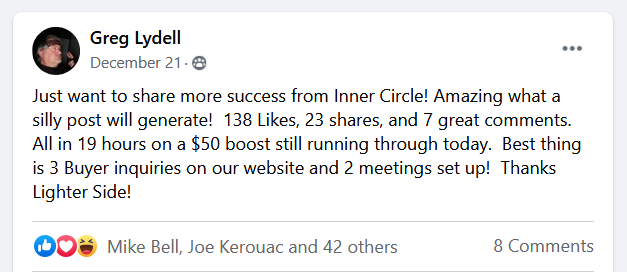
Agents: How To Not Suck At Social Branding (even if you have the personality of a lockbox)
There’s no way around it… Now, more than ever, you’ve GOT to stand out as a real estate agent. To say our industry is over-saturated



If you’ve ever watched The Price Is Right, you’ve seen it happen: Contestants guess the price of a blender, a vacation, or maybe even a new car. Everyone gives it their best shot to come as close as possible to the actual price…until one strategic player waits for their turn and says, “$1.”
And sometimes, it wins—not because it’s the right price, but because it’s just lower than everyone else. There’s nothing wrong with doing it. It’s totally within the rules. But it’s certainly aggravating for everyone that had to come up with a thoughtful number to be at the mercy of someone who has had the privilege of seeing what they bid.
Real estate has its own version of that moment.
Maybe you’ve done your homework. You’ve looked at the comps, talked through pricing with your agent, and listed your home at a number that feels justified and market-appropriate. And then, a new listing pops up nearby—similar home, size, condition and neighborhood… lower price. Probably not as absurd as a mere dollar, but lower enough to attract buyers and potentially steal them from you.
It’s completely normal to feel unsettled. Frustrated. Even a little blindsided.
While this can happen in even a strong sellers’ market, it’s something you may start seeing more as the market is shifting in many areas. And if it does, take a breath—this doesn’t automatically mean your pricing was wrong, or that you even have to adjust your own price.
A lower-priced listing nearby isn’t the end of the world. But it’s worth watching closely, and talking through with your agent.
Unfortunately, your home doesn’t exist in a vacuum and the market can change even once you decide upon a price for your home and list it. What felt like a smart, competitive price one day can suddenly feel precarious if a new listing shows up down the block for less.
Sometimes it’s a home you were already aware of—one you used as a benchmark when working with your agent to set your own price—and then that seller drops their price unexpectedly.
Other times, it’s a brand-new listing that swoops in and surprises everyone with a price tag that undercuts yours.
While it’s likely the seller (and their agent) took your price into account when they chose theirs, it’s not always a direct reaction to your listing. In fact, their reasons might have little to do with you at all.
Here are a few possibilities:
Real estate isn’t priced like gas at competing stations, and one lower priced listing doesn’t instantly drag down the value of every home in the neighborhood. It may attract attention and get buyers lining up to see it and make offers, but only one of them is going to successfully buy it.
A thoughtful, up-to-date Comparative Market Analysis (CMA) should already reflect what buyers are actually willing to pay for your house, based on recent sales, not just new listings. As long as there aren’t a flood of other homes hitting the market at lower prices, your home still has a solid footing.
In fact, as long as your price is justifiable, a lower-priced listing nearby might work in your favor:
Yes, a lower-priced home could impact how buyers perceive your property. It might change the dynamics slightly—more competition can do that. But it doesn’t automatically mean you’re overpriced or that you need to act fast.
The key is to stay objective. Look at the big picture.
How does the new listing truly compare to yours in terms of condition, upgrades, and appeal? Are buyers responding to it in a meaningful way, or is it just getting attention because it’s new and cheaper?
Ask your agent to help you assess whether the other listing is shifting buyer behavior or just adding some noise. It may warrant a wait-and-see approach… or it may justify a price adjustment down the line. Either way, the decision should be based on data and strategy—not emotion.
Bottom line: Don’t ignore it, but don’t let it rattle you either. The best response is thoughtful, not reactive.
The Takeaway:
If your house is on the market and a new listing comes on at a lower price, it’s certainly something you should be aware of and take into consideration. However, as long as your home is priced appropriately based upon recent sales in the area, it doesn’t mean you have to immediately drop your house to compete with them.
Stay focused on your own pricing strategy, watch how the market responds, and lean on your agent’s insight to determine if any adjustments are truly necessary. One lower-priced listing doesn’t automatically change your home’s value—it just means it’s time to keep your eyes open and your decisions grounded in data, not drama.

(Shh, our secret)
Show your sphere your an expert. We have over 2050 articles covering every real estate topic your audience will love.
Position yourself as a real estate authority!
Real estate + topical events — the perfect match!
Become the bearer of good vibes!
Because hey, everyone loves to laugh!



Get our weekly email that makes communicating with your sphere on social actually enjoyable. Stay informed and entertained, for free.

There’s no way around it… Now, more than ever, you’ve GOT to stand out as a real estate agent. To say our industry is over-saturated

Agents learn early on in their career that listings are the name of the game. Unfortunately, no matter how much sense that makes, it’s still

Landing yourself a listing appointment is hard enough, but then you still have to nail your presentation in order to walk out of it with
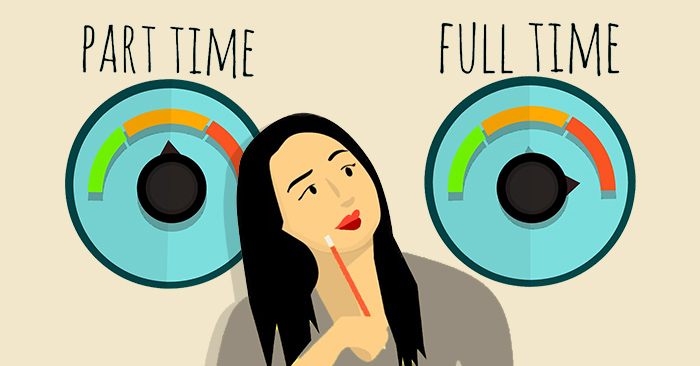
If you’ve been wondering if you can start out as a real estate agent part-time until you can get enough business to go full time,

Hey there, Real Estate friend – I know Facebook can really burn your biscuits, but… Don’t throw in the towel just yet. Your business page
Depending on your situation, it may not take the full 30 minutes.

This reset password link has expired. Check the latest email sent to you.
